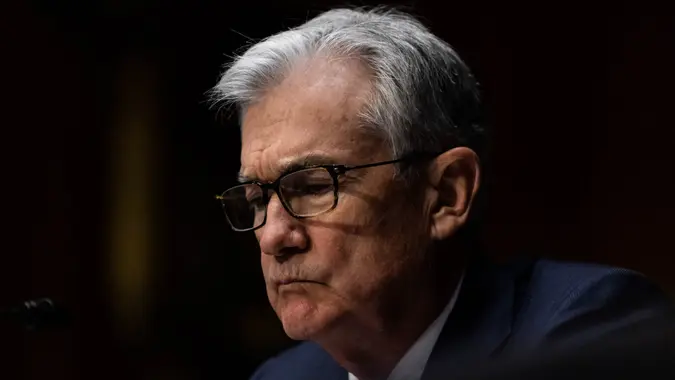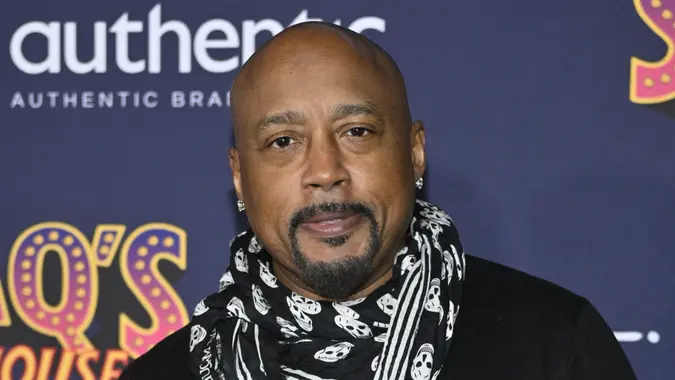Powell Tells Senate the Fed Will Fight Inflation With ‘Normalized’ Policy, Massive Stimulus No Longer Needed

Commitment to Our Readers
GOBankingRates' editorial team is committed to bringing you unbiased reviews and information. We use data-driven methodologies to evaluate financial products and services - our reviews and ratings are not influenced by advertisers. You can read more about our editorial guidelines and our products and services review methodology.

20 Years
Helping You Live Richer

Reviewed
by Experts

Trusted by
Millions of Readers
Federal Reserve Chairman Jerome Powell offered encouraging remarks about the U.S. economy during a U.S. Senate confirmation hearing on Jan. 11, saying that the combination of fewer supply chain delays and “normalized” policy by the central bank will help tame inflation.
Powell also suggested that aggressive federal stimulus packages — like those passed in 2020 and 2021 to help Americans deal with the COVID-19 pandemic — are no longer necessary to help prop up the economy. He pointed to strong employment numbers as evidence of the economy’s health, and also said the economy should weather the current omicron surge with only “short-lived” impacts.
“What that’s really telling us is that the economy no longer needs or wants the very highly accommodative policies that we’ve had in place to deal with the pandemic and its aftermath,” Powell told the Senate Committee on Banking, Housing and Urban Affairs. “We’re really just going to be moving over the course of this year to a policy that is closer to normal. But it’s a long road to normal from where we are.”
To get back to normal, the U.S. must first figure out a way to deal with rising inflation, which is expected to top 7% in December, CNBC reported. To battle inflation, the Fed plans to scale back its asset purchases and raise interest rates.
“As we move through this year… if things develop as expected, we’ll be normalizing policy, meaning we’re going to end our asset purchases in March, meaning we’ll be raising rates over the course of the year,” Powell said. “At some point perhaps later this year we will start to allow the balance sheet to run off, and that’s just the road to normalizing policy.”
Powell also said he’s optimistic that supply chain bottlenecks will ease this year, which will also help bring down inflation, The Wall Street Journal reported.
Powell was openly endorsed by both Republicans and Democrats on the Senate Banking Committee, which should lead to a likely confirmation for a second term as Fed chairman, according to Reuters.
More From GOBankingRates
 Written by
Written by  Edited by
Edited by 

























